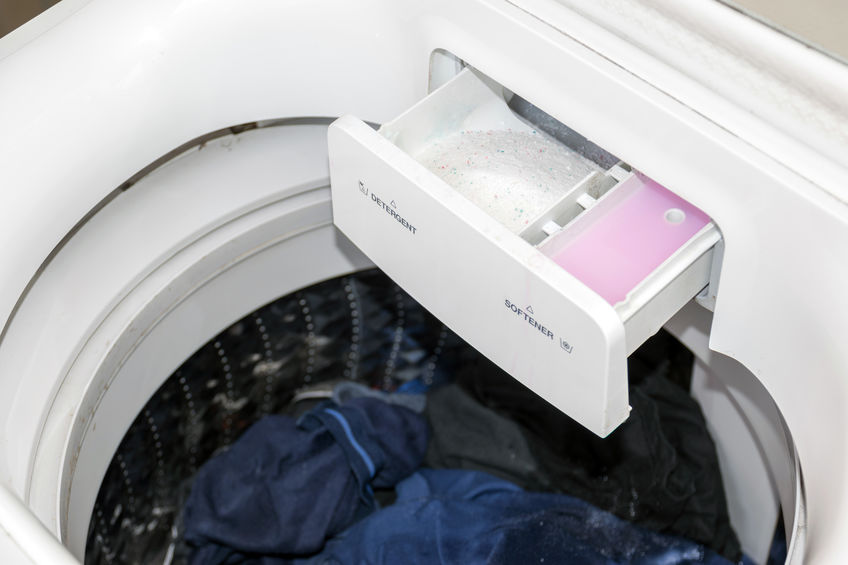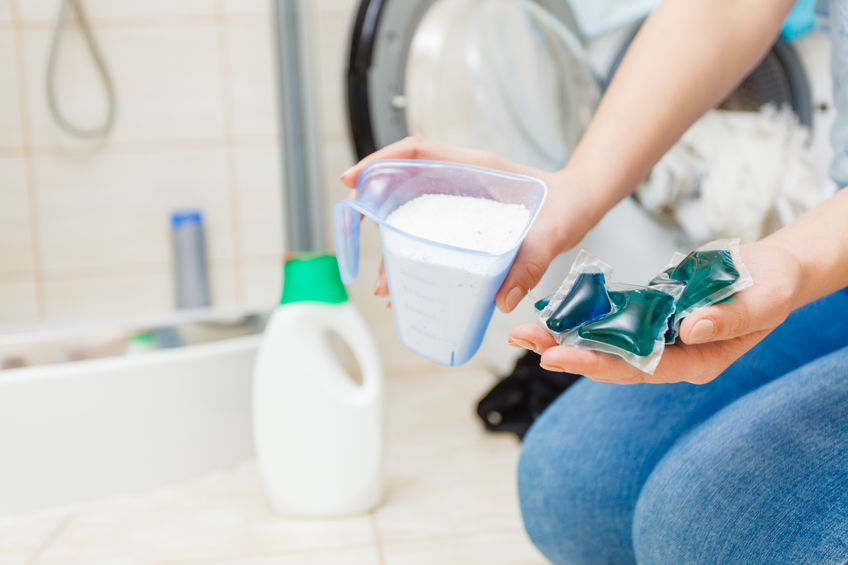Removing Unknown Clothing Stains: 6 Solutions
What's that spot on your child's new white T-shirt? The remains of a chocolate ice cream cone, perhaps? Or the muddy aftermath of a skateboard stunt gone awry?
These six solutions for removing unknown clothing stains can help the next time you're called upon to tackle them on wash day. If you don't know the origins of a stain, all is not lost.
Removing Unknown Clothing Stains With a Cold Water Rinse
If you don't know what the stain is, rinse or soak in cold water before applying a stain-removal treatment.
Get into the habit of checking all your wet clothes for stains before tossing them in the dryer, as this can permanently set a stain. Unfortunately, when a clothing disaster strikes, you're not always near a washing machine or stain stick.
Don't worry: Some remedies work even on set-in spots and stains. So treat the stain as soon as possible.
Pretreating works best on removing unknown clothing stains in small spots and fresh stains. But presoaking is essential for old stains and protein stains.
1. Removing Unknown Clothing Stains With Household Ammonia Mix
Mix one part of ammonia with eight portions of water. Apply directly to the stain and let it sit for eight hours. Then, wash the treated garment separately from the rest of your laundry.
2. Enzyme Laundry Detergent Stain Remover
Enzymes in laundry detergent help remove protein-based stains, such as blood and chocolate, and are often quite effective on unknown stains. Add one teaspoon of laundry detergent that contains enzymes to one cup of water.
Work the solution into the stained area until fully saturated, and allow it to sit for 10-15 minutes. Wash as usual at the warmest wash water temperature that is safe for the garment. Check the care label tag for this information.
3. Dishwashing Liquid
Mix one teaspoon dishwashing liquid and one cup of water. Apply to the unknown stain. Allow to sit for 30 minutes, machine wash.
4. Hydrogen Peroxide Stain Remover
There is no mixing required here. Use just 3 percent undiluted hydrogen peroxide. Pour it directly on the unknown stain.
Use a toothbrush to work it into the fabric gently. Allow the peroxide to sit on the garment for 5-10 minutes—then machine wash.
5. Fels-Naptha Paste
Shave off slices of Fels Naphtha laundry bar soapWork the mixture into a paste. Apply to the stained area, wait 10 minutes, then launder as usual.
6. Zap Unknown Stains with WD-40
Yes, WD-40If that mystery spot is still visible after all your efforts, defer to the expertise of your dry cleaner. Professional chemicals can often dissolve greases and oils that detergents available to consumers can't.
- Clean Home
- Laundry
- Unknown Stains









